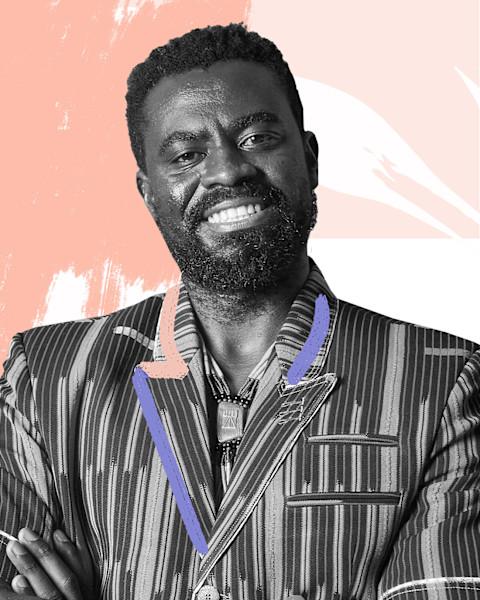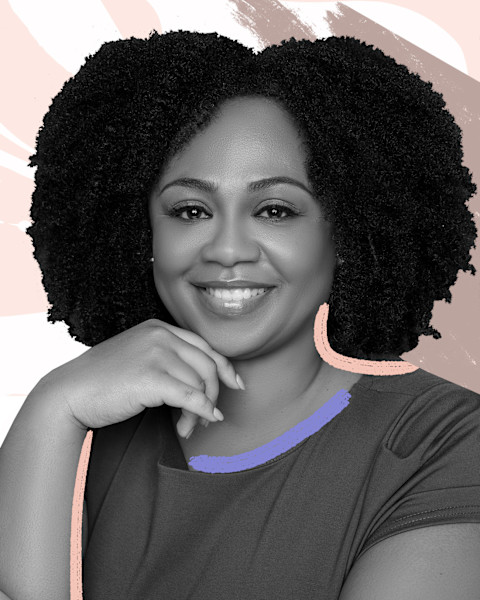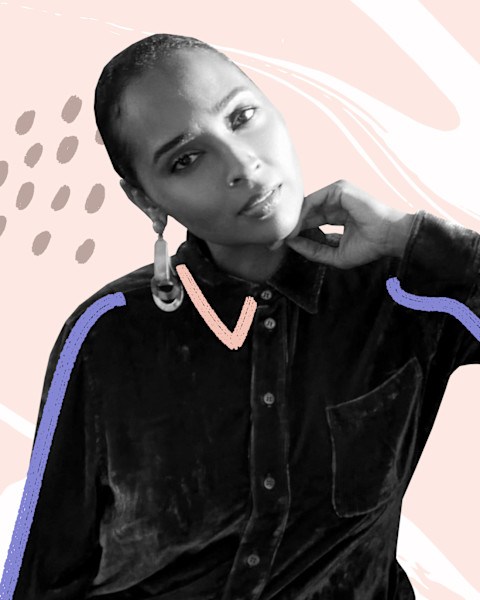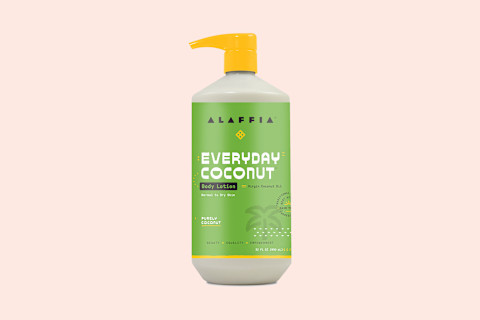3 Voices Changing The Conversation Around Self-Care

What's the first thing that comes to mind when you hear the word self-care? You're not alone if it's an image of face masks and Epsom salt baths hash-tagged as such on a Sunday (and you're far from it if that's your ritual—it's one of our favorites, too). But the scope of the self-care movement as we know it is progressing in more ways than one, and the work of today's purpose-driven visionaries and voices are proof that acts of self-care can be richer and more relevant than ever before.
Below, meet three of the changemakers currently expanding the reach, realm, and power of self-care—and how we think about these two little words as a result:
Social stewardship on a global scale.

Olowo-n'djo Tchala, Founder and CEO of Alaffia
It's one thing to care for your body and skin by knowing what's in a product. But when that same product is changing lives on the other end of the supply chain, that's the ultimate sweet spot of cultivating well-being. And Olowo-n'djo Tchala, the founder of natural personal care brand Alaffia (which you probably recognize from Whole Foods Market's beauty section) is moving this particular needle in West Africa.
Tchala's entrepreneurship stems from a childhood of sharing a studio-size room in Togo, West Africa, with seven siblings and his hardworking mother—and dropping out of school as an 11-year-old to help her provide for the family. Uplifting women, he believes, is the key to alleviating the region's long history of generational poverty.
"The majority of West Africa's population lives in rural areas, and most women do not know how to read or write," Tchala tells mbg. "So, I had to think: What are the jobs that women like my mother can do to fit into the global market? It seems the world is always trying to offer us Africans something, but what can we offer the world?" Enter shea butter—a sustainable ingredient for moisturizing skin. "We have a deep cultural knowledge of shea," Tchala says, "so we can meet this need in the market if done right."
It seems the world is always trying to offer us Africans something, but what can we offer the world?
Since moving to the U.S. in 1998 and launching Alaffia in 2003, Tchala has been lauded for establishing revolutionary fair-trade business practices that sustainably contribute to the health and education of women like Tchala's mother, changing their trajectory and the future of their family. "When you talk with these women, they don't say, Oh, I'm happy to have money or even a job. They say, I feel like what I'm doing matters to the world. To me, that's priceless."
But there's still a long way to go. "While it's true that overall we're becoming more conscious as humans and more connected around the world, we're facing global challenges that we've never faced before," says Tchala, who's also now a U.S. rep for the Advisory Committee on Africa advising emerging sustainable business initiatives and practices. "This is just one of the many models that will raise communities out of poverty in West Africa and provide the U.S. with alternative healthy products, so that ultimately, we can take care of each other."
Shop Alaffia:
Accessible spaces for support.

Joy Harden Bradford, Ph.D., psychologist and founder of Therapy for Black Girls
We're seeing a swell of new spaces dedicated to nearly every aspect of personal care—from holistic fertility services to acupuncture studios. But ahead of the curve in 2014, clinical psychologist Joy Bradford filled a necessary gap in mental well-being that hadn't yet existed. Bradford launched Therapy for Black Girls—an online space and resource uniquely created for Black women to find mental health information that feels relevant and accessible. Bradford started by blogging about different topics, then added a therapist directory and a weekly podcast in the years since.
As a psychologist, Bradford believes that therapy can be a helpful tool for everyone, but tapping into this kind of self-care is often a far reach for women in the black community. Part of her work is about shattering the stigma around mental health and dispelling the myths surrounding therapy and who "needs" it. "I don't think we always realize how societal oppressions like racism, sexism, and so on impact our mental health," Bradford tells mbg. "I think it's really important for people to be validated for experiencing some very traumatic situations that they had no control over. And it's important to help them figure out ways to manage how they're feeling while also fighting against the systems that caused it."
I don't think we always realize how societal oppressions like racism, sexism, and so on impact our mental health.
As Therapy for Black Girls continues to gain momentum, Bradford is noticing one thing: "how disenfranchised and defeated black women continue to feel in utilizing mental health services. Things like dealing with health insurance, psychiatric hospitals, affording the cost of care are still issues. [Moving forward], I envision Therapy for Black Girls being more involved with policy change and working with institutions to ensure access and quality care."
Vibrational-based living.

Lalah Delia, spiritual teacher, founder of Vibrate Higher Daily, and bestselling author of Vibrate Higher Daily: Live Your Power
The idea that everything in the world has vibrational energy isn't new, but when it comes to combining self-love and soul work, spiritual writer Lalah Delia is shining a new light on vibrational-based living. Her approach to spirituality as a part of well-being is emblematic of a generation that's come up in the era of social media (and if you're one of her 270k followers on Instagram, you know)—she shares simple yet powerful daily meditations that can help us heal, find a higher purpose, and move through life more intentionally.
Her backstory looks like a place many of us have been: "I was so tired of my life being in this loop," Delia tells mbg. "No matter what job or relationship I was in, or where I moved to, the same story would play out, just with different characters. To break the cycle, I understood that it was going to take a different energy or force to do that."
Delia found a mentor who taught her about vibrational energy, and "it spoke to my life in a way that I knew, this is what I'm looking for." It started with eating healthier, whole foods, and soon, "my thoughts became clearer, my self-worth lifted, and the fog in my life cleared so I could see things for what they were. I became more sensitive to energy in my life that didn't serve me, and started drawing in the energy I needed to vibrate higher."
To break the cycle, I understood that it was going to take a different energy or force to do that.
In a time when we have access to an unprecedented amount of content, especially when our world is facing enormous challenges, Delia's voice is part of a rising movement of self-awareness and empowerment. It's a much-needed reminder of the beauty that exists on this planet and the role we all play in it because, as Delia puts it, we're all connected.
"When we as humans choose to honor our role in this ecosystem and uplift the ecosystem versus tear it down, then that shifts what our energy toward each other and the world looks like," she says. "My life felt very depressing when I didn't understand that I could be part of a bigger picture. Now, high-vibrational living challenges me to be more accountable for the energy I put out into the world. And my hope is that we can encourage each other to look at our lives and go, What can I create in my life? Whether that's more peace, or giving more energy to our gifts, or cooking more whole foods in my kitchen—we have the power to make our journeys serve us even better."



